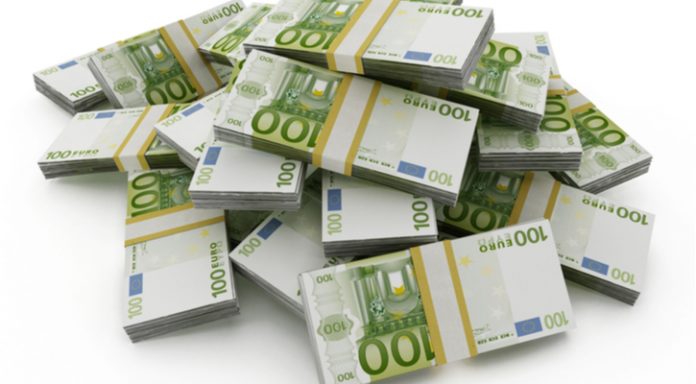Despite pushing higher versus the euro in early trade on Monday, the pound fell later in the session. Brexit remained a key driving factor pushing the pound down to €1.1300.
| What do these figures mean? |
|---|
|
When measuring the value of a pair of currencies, one set equals 1 unit and the other shows the current equivalent. As the market moves, the amount will vary from minute to minute. For example, it could be written: 1 GBP = 1.13990 EUR Here, £1 is equivalent to approximately €1.14. This specifically measures the pound’s worth against the euro. If the euro amount increases in this pairing, it’s positive for the pound. Or, if you were looking at it the other way around: 1 EUR = 0.87271 GBP In this example, €1 is equivalent to approximately £0.87. This measures the euro’s worth versus the British pound. If the sterling number gets larger, it’s good news for the euro. |
The pound was unable to maintain its early gains in the previous session, as Brexit once again dominated the session. There were two key points weighing on demand for sterling. Firstly, the Prime Minister Theresa May ruled out any possibility of a second referendum. Up until now, pound traders had always had a glimmer of hope that is things got too messy over Brexit, o r if the outcome looked too economically disastrous, then at least the UK could hold another Brexit referendum, potentially reversing all the damage done. Investors now know this won’t happen.
Secondly, Theresa May gave in to hard-line Brexiters demands over the customs bill amendments. One of the amendments is a particular concern to those supporting the Prime Ministers proposal, because it could make the deal completely unacceptable to the EU. If this is the case then a no deal, hard Brexit is once again a likely possibility. As a result, the pound lost ground.
| Why is a “soft” Brexit better for sterling than a “hard” Brexit? |
|---|
| A soft Brexit implies anything less than UK’s complete withdrawal from the EU. For example, it could mean the UK retains some form of membership to the European Union single market in exchange for some free movement of people, i.e. immigration. This is considered more positive than a “hard” Brexit, which is a full severance from the EU. The reason “soft” is considered more pound-friendly is because the economic impact would be lower. If there is less negative impact on the economy, foreign investors will continue to invest in the UK. As investment requires local currency, this increased demand for the pound then boosts its value. |
Today the UK economic calendar fills up, which could act as a timely distraction amid the Brexit woes. Investors will look towards UK unemployment data which analysts predict will remain constant at 4.2%, and average wage growth figures. Analysts are also expecting average wage growth to have stagnated at 2.5%. Given that average earnings are considered by analysts to be an insight to future inflation, a stagnant print could reduce the chance of the Bank of England raising interest rates in two weeks time.
| Why do raised interest rates boost a currency’s value? |
|---|
| Interest rates are key to understanding exchange rate movements. Those who have large sums of money to invest want the highest return on their investments. Higher interest rate environments tend to offer higher yields. So, if the interest rate or at least the interest rate expectation of a country is relatively higher compared to another, then it attracts more foreign capital investment. Large corporations and investors need local currency to invest. More local currency used then boosts the demand of that currency, pushing the value higher. |
Euro Trade Figures Sprk Fear of Further Threats
The eurozone trade balance was the central focus for euro traders in the previous session. The May Trade Balance showed that the Eurozone trade surplus unexpectedly slipped from €16.7 billion to €16.5 billion, rather than increasing to the €20.9 billion analysts forecast. Delving further into the numbers analysts saw that the Eurozone trade surplus with the US actually increased in May, despite concerns over trade wars. This set off concerns that the figures could spark another reaction from the US, a fear which weighed on demand for the euro.
Today there is no high impacting eurozone economic data. Instead investors will continue to watch out for any trade war related headlines.
This publication is provided for general information purposes only and is not intended to cover every aspect of the topics with which it deals. It is not intended to amount to advice on which you should rely. You must obtain professional or specialist advice before taking, or refraining from, any action on the basis of the content in this publication. The information in this publication does not constitute legal, tax or other professional advice from TransferWise Inc., Currency Live or its affiliates. Prior results do not guarantee a similar outcome. We make no representations, warranties or guarantees, whether express or implied, that the content in the publication is accurate, complete or up to date. Consult our risk warning page for more details.
This article was initially published on TransferWise.com from the same author. The content at Currency Live is the sole opinion of the authors and in no way reflects the views of TransferWise Inc.





